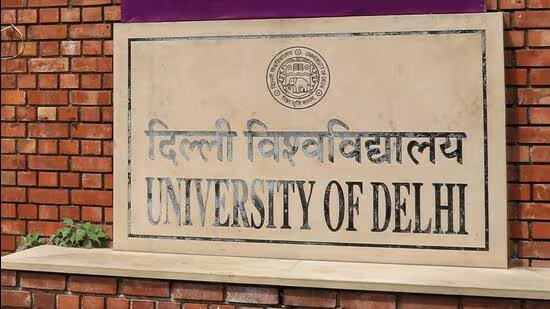
Delhi University Pushes Forward with Curriculum Reforms and NEP Readiness Despite Criticism
Despite internal objections, Delhi University (DU) has approved a series of curriculum changes and infrastructure projects, underlining its readiness for the rollout of the fourth year of undergraduate studies under the National Education Policy (NEP) 2020, which begins in the academic year 2025–2026.
During a recent Executive Council meeting chaired by Vice Chancellor Professor Yogesh Singh, the university confirmed several key developments. One of the most debated reforms was the removal of courses on China, Islam, and Pakistan from the postgraduate Political Science syllabus. These changes, initially approved by the Academic Council on June 5, have sparked criticism from members like Executive Council representative Mithuraaj Dhusiya, who alleged that normal academic processes were bypassed and transparency compromised.
Still, DU leadership remains committed to pushing forward. Professor Singh reiterated that the university is “fully prepared” to implement the NEP’s fourth UG year, with expectations that over 60% of students will opt to continue into the final year. Addressing concerns over faculty shortages, he clarified that only permanent faculty will teach fourth-year courses, while guest lecturers will handle junior-level classes. Regular teachers will be compensated fairly and assigned more sessions, he added.
Academic Expansion and Faculty Updates
The council also approved the appointment of Professor Rajni Abbi as the new Director of DU’s South Campus. The VC used the opportunity to present DU’s recent strides in digital access and infrastructure. The university library has now been fully digitised, offering students 24/7 access to more than 2 lakh e-books and journals, while Wi-Fi upgrades worth ₹65.71 crore have improved connectivity across campuses.
Singh encouraged college principals to nurture student entrepreneurship by establishing startup incubators and registering Section-8 companies to create sustainable innovation ecosystems within colleges.
Infrastructure Upgrades in Progress
On the infrastructure front, DU has already received ₹329 crore for 17 ongoing projects totaling ₹1,912.15 crore. Key developments include:
- Vertical expansion of the science building
- Extension of the Social Centre School Building in Maurice Nagar
- New WUS Health Centre and computer centre at North Campus
- A new academic building at SP Jain parking lot (South Campus)
- A Cultural Activity Centre near Shankar Lal Hall
Further, dormitory expansions are planned, including additional hostels for female students and working women at the Dhaka campus. Existing boys’ and girls’ hostels at South Campus will also be upgraded. Following complaints about structural deterioration in buildings on the Dhaka campus (Mukherjee Nagar), the CPWD has begun a structural audit, and phased retrofitting will be conducted as needed to ensure safety.
Sustainability and Cultural Projects
In line with green energy goals, DU has approved a partnership with the Solar Energy Corporation of India (SECI) to install solar power plants on both campuses under the RESCO model, in accordance with university energy policy guidelines.
Culturally, the university proposed building Dr. BR Ambedkar Udyan (a memorial garden) and renaming an auditorium in his honour. Additionally, a committee will explore the creation of a sports scholarship in memory of Arun Jaitley, DU alumnus and former Union Minister.
Rankings and Recognition
Concluding the session, the Vice Chancellor shared DU’s improved performance in the QS World University Rankings 2026. The university now ranks 328 globally, 7th in India, and has climbed 14 spots to reach 30th worldwide for employment outcomes – a significant achievement reflecting its growing reputation.
The improvement underscores the success of Delhi University’s recent initiatives, including:
- Enhanced digital infrastructure and 24/7 library access
- Curriculum reforms aimed at aligning with global and industry standards
- Startup incubation and entrepreneurship encouragement
- Stronger linkages between academic departments and the job market
These achievements, the VC noted, reflect DU’s strategic focus on global competitiveness, institutional reform, and commitment to excellence under the framework of National Education Policy (NEP) 2020.
.Also Read: Australia Hikes Student Visa Fee to AUD 2,000: How It Compares to Other Countries
Also Read: India’s Emergence as a Global Force in Intellectual and Cultural Significance